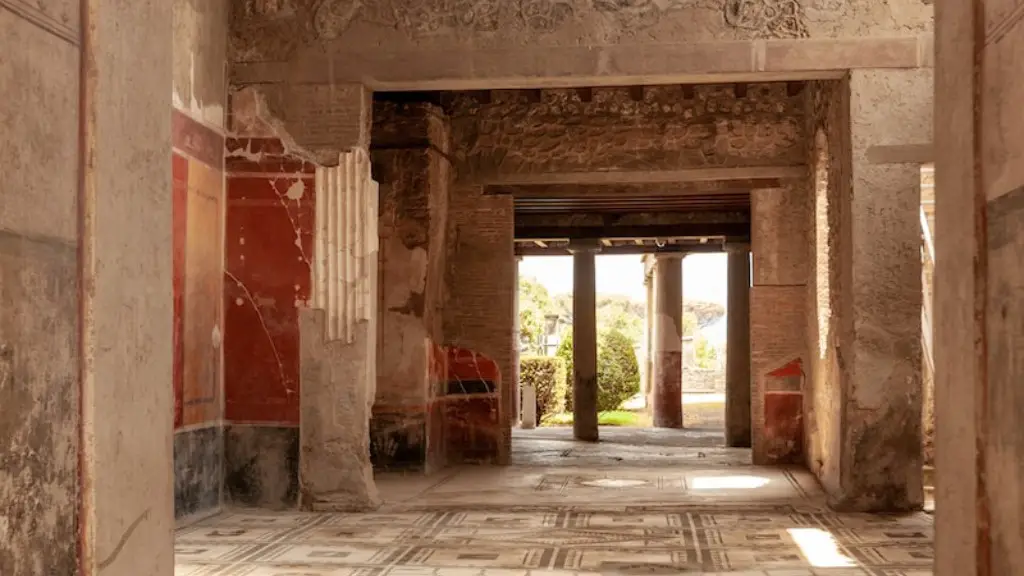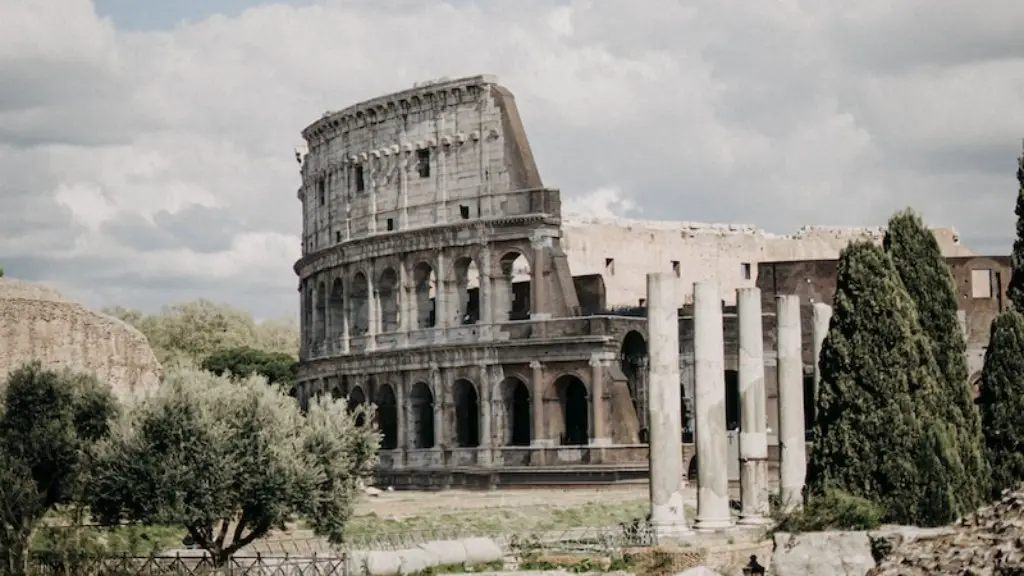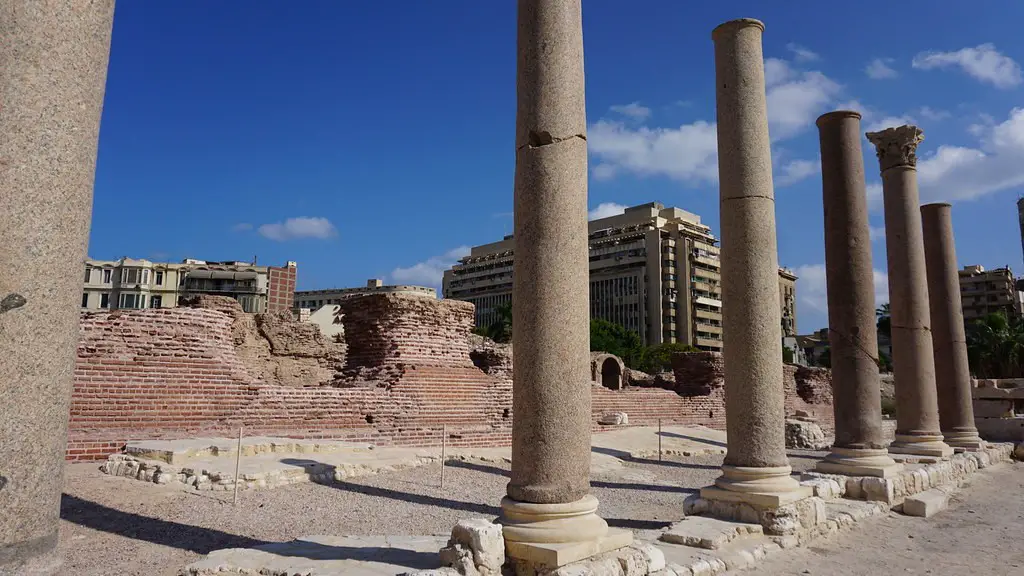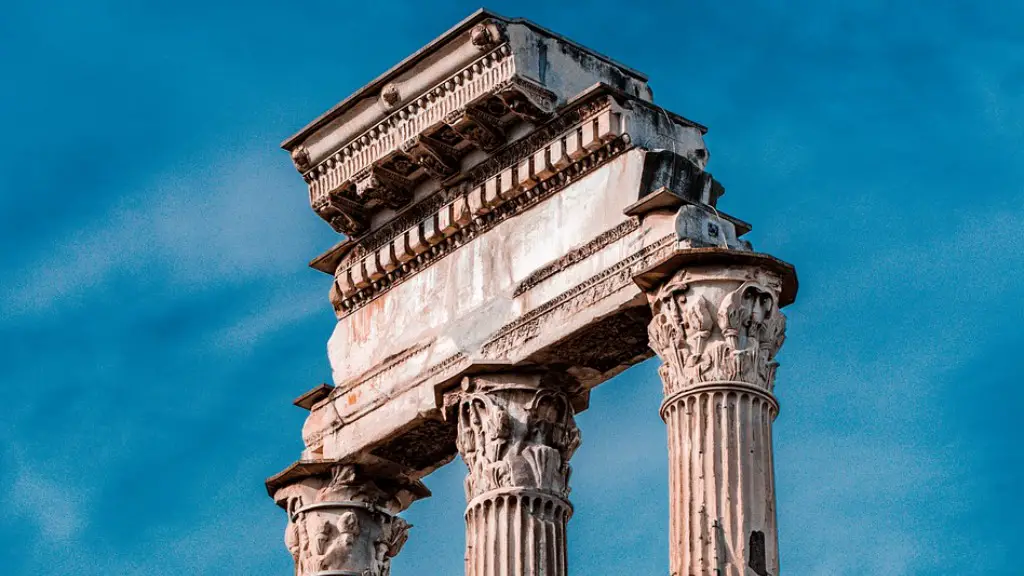Ancient Rome was one of the most influential and powerful empires of its time. From its humble beginnings as a small village on the Tiber River, Rome rose to become one of the largest and most influential empires in history. The Roman Empire was, in many ways, responsible for shaping the Western world as we know it today. The Roman Republic and Empire were huge political and military institutions that left a lasting legacy.
Rome was also responsible for major innovations in architecture, engineering, and governance that have shaped the modern world. The Romans were master builders and engineers, and many of their accomplishments still stand today. The Colosseum, the Pantheon, and the aqueducts are just a few of the many examples of Roman engineering and architecture that have withstood the test of time.
Roman governance was also highly influential, and many of the political institutions and practices that we take for granted today were first established by the Romans. The concept of representative government, for example, was first developed by the Romans.
In short, the Roman Empire was responsible for many of the things that make Western civilization what it is today. We owe a great debt to the ancient Romans for their many contributions.
From ancient Rome, we get a lot of things. We get the Latin language, which is the language of many Western countries. We get ideas of government, law, and democracy, which are important in many modern societies. We get art, literature, and monuments. And we get a better understanding of the history of Europe and the Western world.
What are 3 things we get from ancient Rome?
The roads in Rome are some of the oldest in the world. The old proverb “all roads lead to Rome” stems from the fact that originally they sort of did, or rather they came from Rome. The first roads were built by the Roman Empire over 2,000 years ago and were used for military, trade, and transportation. These roads were so well-built that many are still in use today.
The first central heating system was invented in Rome. The Roman Empire used a system of pipes to transport hot water to homes and public baths. This system was so efficient that it was used for centuries after the fall of the Roman Empire.
Concrete was also invented by the Romans. It was used to build some of the most iconic buildings in history, such as the Colosseum and the Pantheon.
The calendar we use today is based on the Julian calendar, which was first used in Rome.
The flush toilet is another Roman invention. The first flush toilets were built in Rome in the 1st century AD. They were so effective that they were used for centuries after the fall of the Roman Empire.
The sewers of Rome are also some of the oldest in the world. They were built
The Roman Empire was responsible for a number of inventions that have had a lasting impact on the world. Here are 10 of them:
1. Cement: Used in the construction of many of Rome’s iconic buildings, cement is a key ingredient in concrete.
2. Sanitation: The Romans were the first to develop a comprehensive system of public sanitation, including sewers and latrines.
3. Roads: The Roman road network was the most extensive and advanced of its time, and served as the model for many modern highways.
4. Social care and welfare: The Roman Empire was the first to establish public institutions to care for the sick and disabled.
5. Julian calendar: The calendar used by most of the world today is based on the one first introduced by the Romans in 45 BCE.
6. Elements of surgery: Roman surgeons were the first to develop many of the techniques and instruments still used by surgeons today.
7. Elements of the modern legal system: The Roman system of law was the basis for many of the legal systems in use today.
8. Banking: The first banks were established in Rome, and the city was also home to the first recorded instance of a loan default
What did the Romans make that we use today
Although the ancient Romans are most famous for their concrete structures that are still standing today, they were not the first to use hydraulic cement-based concrete. The ancient Greeks and Egyptians used a similar type of concrete made from lime and sand. However, the Roman concrete was much stronger and more durable due to the addition of volcanic ash, which acted as a binding agent. This allowed the Romans to build structures that have withstood the test of time.
The ancient Romans were a people known for their military, political, and social institutions. They conquered vast amounts of land in Europe and northern Africa, built roads and aqueducts, and spread Latin, their language, far and wide.
What 5 things did Rome give us?
The Romans were a highly advanced society with many impressive achievements. Here are 13 things they did for us:
1. Fast food – The Romans were the first to introduce street stalls and ‘food on the move’ as we might think of it today.
2. Advertising and trademarks – The Romans were the first to use advertising and trademarks to promote their businesses.
3. Plumbing and sanitation – The Romans were the first to develop plumbing and sanitation systems.
4. Towns – The Romans were the first to develop towns and cities.
5. Architecture – The Romans were the first to develop classical architecture.
6. Roads – The Romans were the first to build a network of roads.
7. Our calendar – The Roman calendar was the basis for the modern calendar.
8. Law – The Romans developed a system of law that is the basis for many modern legal systems.
9. Education – The Romans were the first to develop formal education systems.
10. Engineering – The Romans were the first to develop many engineering innovations.
11. Art – The Romans were the first to develop many art forms.
12. Language – The Romans developed Latin, which is the basis
The Romans were a significant source of influence on Britain. They gave the country new towns, plants, animals, a new religion and ways of reading and counting. Even the word ‘Britain’ came from the Romans. The Roman period was a significant time in the country’s history and their influence can still be seen in Britain today.
How did Rome change the world?
The Romans were remarkable for their engineering feats and their innovative thinking. Their roads were some of the longest lasting and most used in the ancient world. They allowed for quick transportation of goods and troops throughout the empire. Even today, many of these roads are still in use. The impact of the Roman empire on the western world is still evident in many ways.
Roads were built in order to connect different areas of the empire and facilitate trade and travel. The Roman roads were some of the first paved roads in the world and were built in a way that allowed for easy travel and transportation of goods.
Concrete buildings were another Roman invention that has had a lasting impact. The use of concrete in construction allowed for the construction of stronger and more durable buildings that could withstand the elements better than buildings made of other materials.
Medical tools for the battlefield were another Roman invention that proved to be incredibly useful. The Roman army was able to use these tools to treat injuries and diseases on the battlefield, which helped to improve the chances of survival for soldiers.
The Julian Calendar was another Roman invention that proved to be highly influential. The calendar was designed to be more accurate than the previous calendar used by the Roman Empire and helped to establish a more uniform way of measuring time.
What food did the Romans Give us
The Romans introduced many fruits and vegetables to the Britons, some of which are still part of the modern nation diet. These include asparagus, turnips, peas, garlic, cabbages, celery, onions, leeks, cucumbers, globe artichokes, figs, medlars, sweet chestnuts, cherries, and plums.
The Founding Fathers were greatly influenced by the Roman Republic when they were creating the United States Constitution. They borrowed many features from the Roman constitution, including the checks and balances system, the bicameral legislature, term limits, and age requirements. In some cases, they even copied specific terms from the Roman constitution, like senate, capitol, and committee.
How did Ancient Rome influence society?
Roman law was a major influence on the development of law in Western Europe. The concept of trial by jury, civil rights, contracts, personal property, legal wills, and corporations all have their roots in Roman law. The Latin language spoken by the Romans also spread throughout much of Western Europe during the time of the Roman Empire, furthering the influence of Roman law on the development of European law.
The Roman military medical corps was one of the first dedicated field surgery units and made valuable contributions to medicine. They invented many surgical tools and pioneered the use of the cesarean section. Augustus led the Romans in establishing this important unit.
Why was Rome so important
There is no doubt that Ancient Rome was one of the most influential civilizations in history. It played a major role in the development of law, war, art, literature, architecture, technology and language in the Western world. And its impact can still be felt in the world today.
The main trading partners of Britain during the Roman period were Spain, France, the Middle East and North Africa. Britain exported lead, woollen products and tin to these regions, while importing wine, olive oil, pottery and papyrus from them. British traders relied on the Romans to provide security within the Empire, allowing them to pursue their business without fear of attack.
What ideas did the US adopt from Rome?
The separation of powers is a key element of the US Constitution, and the framers of the constitution drew on Roman ideas in developing this concept. The need for a senate was also inspired by Rome, and the framers saw this as an important check on the power of the president. These ideas have helped to create a balance of power that has served the US well for over 200 years.
The Romans were a great people who achieved a lot in their time. Some of their most notable achievements include founding many cities, creating the Latin alphabet, and codifying the law. They were a people who left a lasting mark on the world and will be remembered for their great accomplishments.
Warp Up
The ancient Romans were a major source of Western law. The Roman legal system was the basis for the legal systems of many countries today. Roman law was extremely complex, and it took professional lawyers many years of study to master it. However, the Roman legal system was also very fair, and it protected the rights of ordinary citizens. Roman law also encouraged people to settle their disputes peacefully, without resorting to violence.
Though Rome was not the first empire, and it certainly was not the last, it was one of the most significant. Rome was the largest empire of its time, and its influence is still felt today. Rome was known for its military might, its architecture and engineering, and its legal system. Roman culture and ideas spread throughout the empire and beyond, and even after the fall of Rome, its legacy remained.





